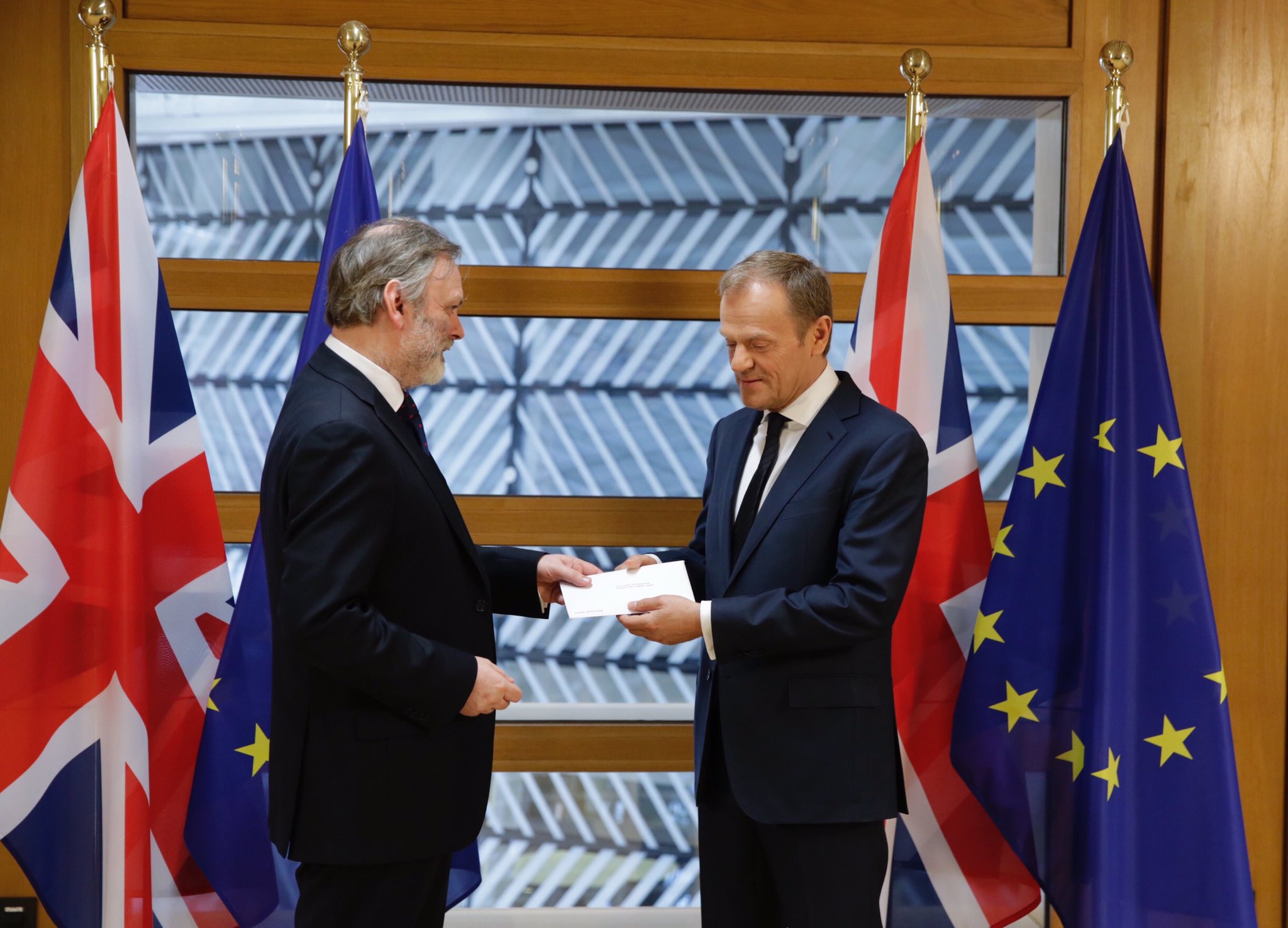Image source: Reuters
The UK has officially pulled the trigger on Article 50 and commenced the two-year negotiation process that will end in its exit from the EU.
With the activation of Article 50 of the Treaty of Lisbon, EU legislators will now convene to decide what positions they will take on a range of issues, from the rights of EU citizens in the UK to financial services passporting.
The Article 50 letter, which was signed by UK Prime Minister Theresa May yesterday, was handed to Donald Tusk, president of the European Council, at lunchtime.
Official negotiations between the European Commission and the UK’s Brexit team are expected to commence on 29 April. The process can take no more than two years, unless the European Council approves an extension.
Membership of the EU is complex, with many aspects of UK legislation intertwined with or underpinned by regulations and directives designed in Brussels.
UK ministers will have to simultaneously negotiate the terms of the exit from the EU, lobby for and begin discussions about a new trade deal with the 27 remaining member states, do the same with every other country around the world, and begin reforming its own laws.
The mooted Great Repeal Bill will preserve EU law in UK legislation in one fell swoop, although this is still subject to the parliamentary scrutiny that almost derailed the so-called Brexit bill earlier in March.
A leaked European Parliament resolution suggested no free trade deal will be forthcoming in the next two years, and that any post-Brexit transition arrangement beginning in 2019 can last no longer than three years.
In particular, the resolution “opposes any agreement between the EU and the UK that would contain piecemeal or sectoral provisions, including with respect to financial services, providing UK-based undertakings with preferential access to the single market and, or the customs union” and “underlines that after its withdrawal the UK will fall into the third country regime foreseen in EU legislation”.
Steve Georgala, CEO at fund administrator Maitland, believes third-party passporting across financial services is highly likely. He said: “I can’t imagine the UK not being given the same third-party passporting rights as other European nations. The UK market is the most sophisticated and regulated jurisdiction in the EU. There is too much vested interest from both sides and people want to invest in the UK.”
According to Ivor Edwards, corporate insurance partner at law firm Clyde & Co, insurers haven't been waiting for Article 50 to be triggered. Planning for the UK’s exit from the EU is “well underway”.
Insurers have been actively working to take concrete steps for all eventualities by setting up carrier companies in remaining EU member states.
Edwards said: “The insurance industry will be hoping that the UK government achieves the freest possible trade in financial services between the UK and EU member states as part of a new strategic partnership agreement.”
“It remains in everyone's interests that financial services can be carried out efficiently across the continent by a system that provides for mutual market access.”
“However, at this point, no-one knows when an agreement might be reached, if at all, nor what provisions in might contain. The industry is watching on with interest, but it's not waiting with baited breath. It's acting already."
Michaela Koller, director general of Insurance Europe, whose national insurance association members are present across 35 countries, commented: “The triggering of Article 50 marks the beginning of a complicated process that could have a significant impact on the future prosperity of both Europe and the UK. Therefore, it is important that the upcoming negotiations focus on delivering a result that benefits citizens and businesses on both sides.”
The UK voted 52 percent to 48 percent in favour of exiting the EU in June 2016, after former Primer Minister David Cameron launched the referendum to appease eurosceptic Conservative colleagues.


